Welsh language: strongholds decline in speakers - census
- Published

Communities in Wales' capital experienced a rise in Welsh speakers, while numbers dropped in many rural areas
The census saw a decline in Welsh speakers in communities which are traditionally strongholds of the language.
Welsh language activists are calling for a series of "radical measures" to tackle the decline in these areas.
Traditional heartland Carmarthenshire saw a drop in Welsh speakers from about 43.9% to 39.9%, while Cardiff saw an increase of 1.1%.
A Welsh government spokesperson said the language will continue to grow.
While numbers overall dropped from 562,000 (19%) in 2011 to 538,000 (17.8%), it aims to reach one million Welsh speakers by 2050.
Six out of the 10 communities which saw the biggest reduction were in Carmarthenshire.
Those communities include Brynaman, Garnant and Glanaman - which saw a 9.7% drop.
However, out of the 10 communities in Wales that saw an increase in speakers, seven were in Cardiff.
Overall, numbers in the capital rose from 11.1% to 12.2%, with the Victoria Park area seeing the biggest increase of 6.8% and Canton second with a 4% increase since 2011.
For Hanna Medi Merrigan and Lowri Jones - friends who live in Cardiff - moving to the capital from the west was an obvious choice.
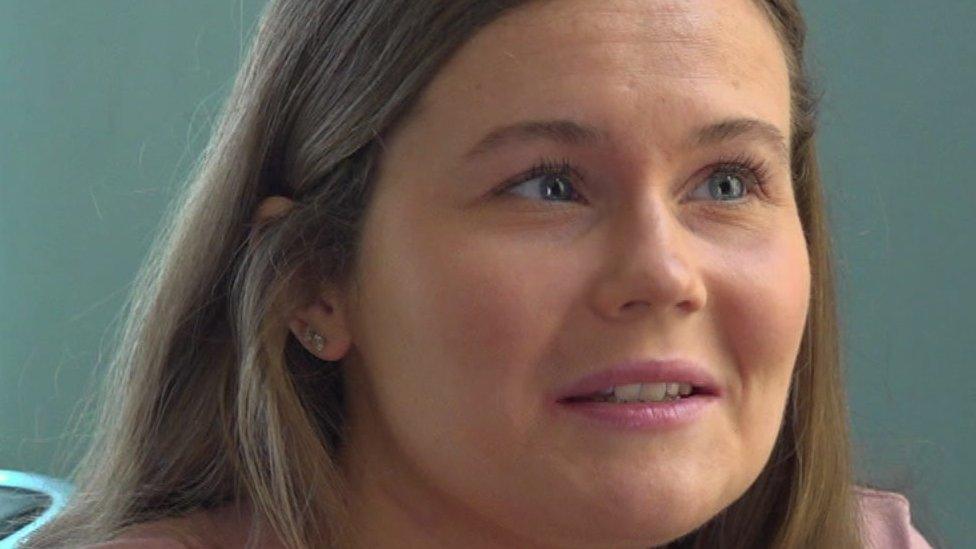
Lowri Jones said: "We need something to attract and then retain people in Carmarthenshire"
"We were both at Aberystwyth University and we're both now in Cardiff," said Lowri Jones, originally from Burry Port.
"And I think that appeals to young working people like us, to move to Cardiff and the [Welsh Language] keeps us here.
"I feel a little guilty that numbers in Carmarthenshire are decreasing, but we need something to attract and then retain people in Carmarthenshire."
For Hanna Medi Merrigan, a city that offers variety to her daughter Marged is one reason she moved from Pontyberem.
"I know my daughter is going to be brought up in an area where she's going to come into contact with cultures, maybe she wouldn't have the same opportunities in the west," she said.
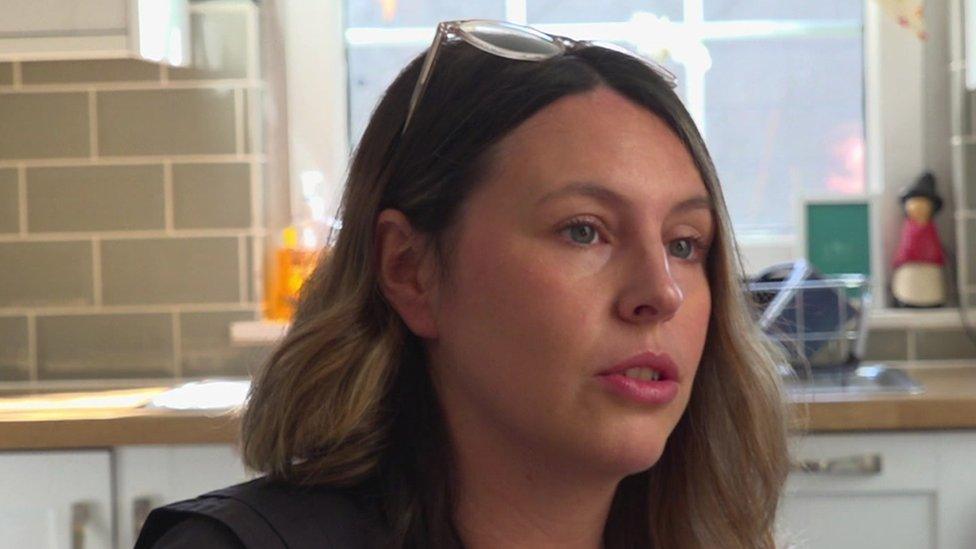
Hanna Medi Merrigan says that Cardiff offers a Welsh upbringing and diversity
Campaign group Dyfodol i'r Iaith, external has responded to a Welsh-speaking Communities Commission, external set up by the Welsh government, saying a series of "radical measures" are needed to strengthen Welsh-speaking communities.
"People can live wherever they want, it's important that people have the opportunity to live in new places, communities to extend their life experience," said chief executive Dylan Roberts.
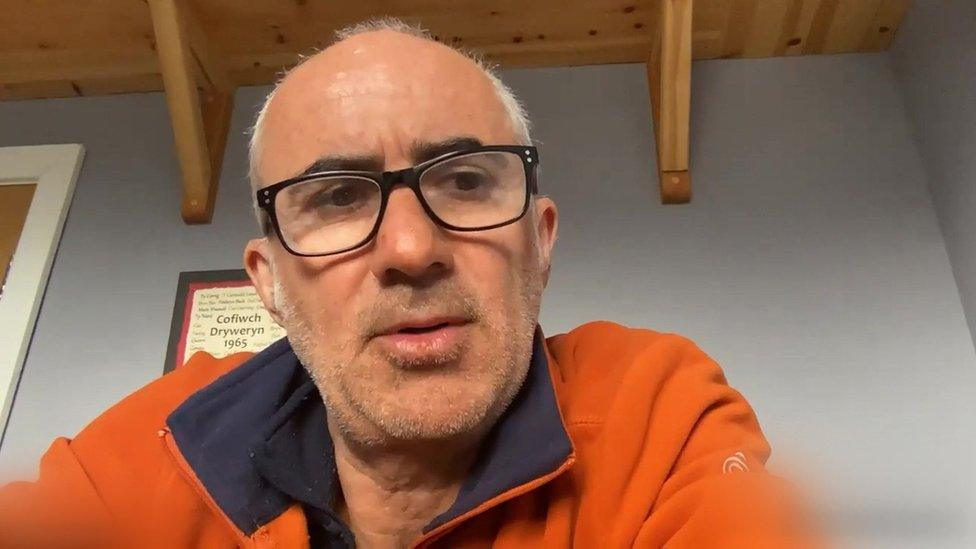
Dylan Roberts said: "Don't lose focus"
"But as important as it is for Welsh young people to go to Cardiff to work and get an education, we must also not lose focus on young people who have gone into further education who are much more likely to live in their communities.
"There are a large number of factors that need to be considered to try and tackle this - it relates to housing, work and influence among young new parents."
Head of Cardiff University's School of Welsh, Dylan Foster Evans, wants to see progress everywhere not one area "at the expense of another".
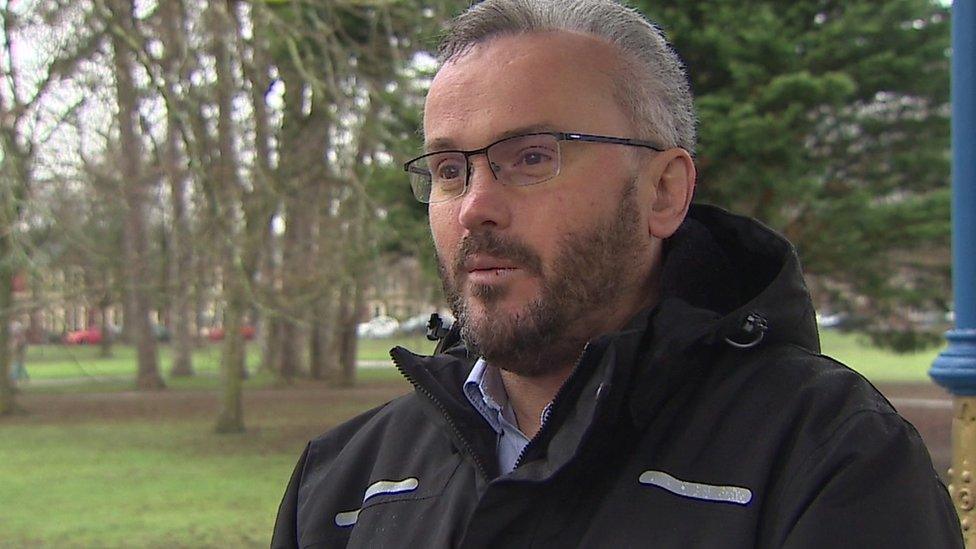
Dylan Foster Evans said living a Welsh-speaking life in Cardiff is very easy
"For decades in fact we can see this pattern starting - back in the 50s and 60s," he said.
"At that time, employers such as the BBC, ITV in Pontcanna and St Fagans, those kind of employers [attracted people to move here].
"What's changed, is that there are structures here now that make living a Welsh life very easy.
"There are primary schools here with over a thousand children in Welsh primary education in this ward [Canton] alone."
A Welsh government spokesperson said: "The census headlines were not what we were hoping to see, but it is important to note that there's more to the story than just the headline, and there's more to language policy than just the census.
"Census data is a snapshot of the last decade. A decade in which we published Cymraeg 2050 in 2017 and laid solid foundations on which the Welsh language can grow and create a truly bilingual Wales."
Related topics
- Published14 January 2023
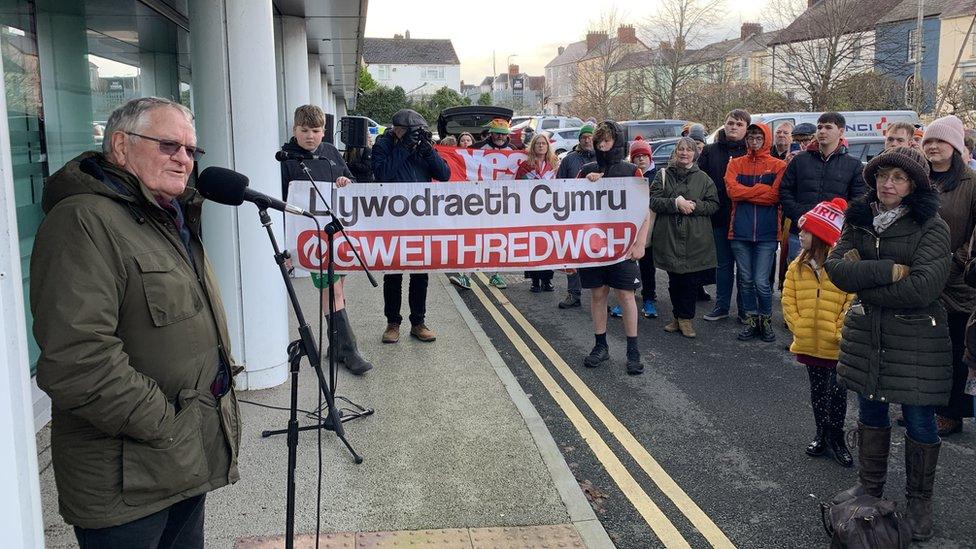
- Published19 January 2023
